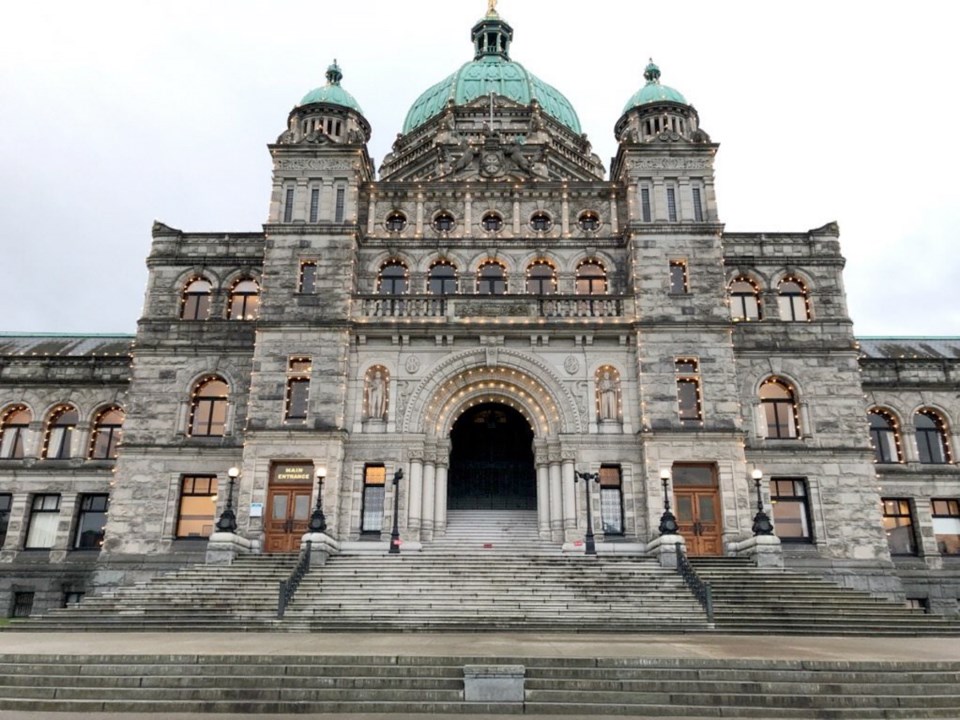The NDP government is dropping a legal requirement to protect citizens’ private data by storing and handling it in Canada, in a new bill that alarms the information and privacy commissioner.
Amendments to the Freedom of Information and Protection of Privacy Act strip the 18-year-old restriction and allow public agencies to send personal information outside of Canada.
The restriction was rushed into force in 2004 out of concern that rampant online surveillance measures taken by terrorist-hunting authorities in the United States after 9-11 would give them access to B.C. data stored or handled in the U.S.
That surveillance by governments and corporations such as Google and Facebook has only increased over the years, but the NDP is now saying the measure is out of date and hampers competitiveness.
Citizens’ Services Minister Lisa Beare said COVID-19 has changed delivery of services and the previous bill barred telehealth and online education. Some measures were undertaken by way of a ministerial order, and “we’re making those changes permanent,” she said.
The data-residency requirement changes will “bring B.C. in line with other jurisdictions” by allowing more “access to digital tools and technologies,” the government said.
The Citizens’ Services Ministry said greater access to cloud-based services will improve post-secondary schools’ ability to attract students by allowing them to use cloud-based tools offered outside of B.C.
The government lined up several interest groups to validate the bill and most of them stressed the importance of allowing B.C. data to flow outside the country.
One said B.C. companies will be able to “leverage cutting-edge technology to help the public sector deliver the modern tools that citizens expect with the privacy protections they need.”
A University of B.C. official said the bill will substantially increase the privacy and security of personal data.
The bill previously barred storage or handling of information outside of Canada. The new section reads: “A public body may disclose personal information outside of Canada only if the disclosure is in accordance with the regulation.”
The independent information and privacy commissioner, Michael McEvoy, said the change is “exceedingly troubling.”
The government is proposing to allow public bodies to send people’s personal information outside Canada without explaining how they will protect it.
“The government is effectively asking the legislative assembly for a blank cheque to eliminate the current restrictions on public bodies accessing and storing people’s personal information outside of Canada.”
McEvoy said a more comprehensive analysis is underway. He was consulted prior to the introduction of the bill and his obvious concerns were ignored.
The original measure was portrayed as way to guard against over-reaching U.S. counter-espionage agencies combing through British Columbians’ personal data being stored on U.S. servers.
“We’re telling [president] George Bush and the Patriot Act to take a hike,” said then-Liberal cabinet minister Joyce Murray.
It forced a number of adjustments in the data management contracting-out drive that was then underway. But several years later, universities and health authorities started complaining that it was hampering them. Internet refinements, such as cloud computing, were making political borders artificial and the law unnecessary.
The NDP has now accepted that argument, subject to public reaction to its proposal.
Just So You Know: Another section of the bill sets a new high-water mark for NDP hypocrisy. After years of preaching about the sanctity of freedom of information whenever the topic came up, they’re now going to start charging anyone who tries to exercise that right.
Freedom-of-information requests for anything other than an applicant’s own personal information will cost about $25. Beare said it’s a modest fee and won’t be a barrier to anyone.
Snoopy taxpayers curious about what the government is up to, media, independent watchdogs and everyone else will have to pay for the right to ask for a glimpse of what’s going on.
So will the opposition, most of whose members learned the freedom-of-information trade by watching how the NDP did it. In opposition, the NDP carpet-bombed Liberal governments with thousands of freedom-of-information requests.
Now they’re going to start charging anyone who files one. The fee is peanuts and won’t raise much revenue. It’s just designed to swing the doors slightly shut, after they spent years prattling about how important it was to keep them open.



